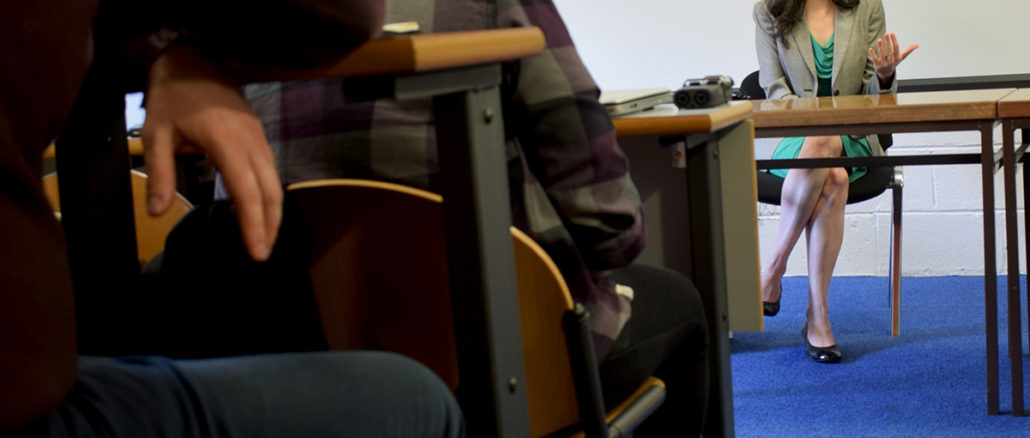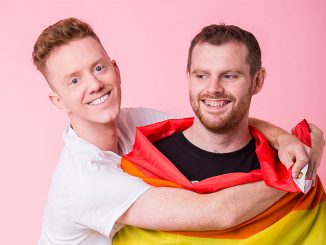
New York Times investigative reporter Dr. Sheri Fink graduated from Stanford University 26 years ago with a Bachelor’s Degree in psychology. The module descriptor for the course reads: excellent training in how to understand human behavior using scientifically rigorous methods.
Fast forward through two decades and she finds herself in Sierra Leone, two years ago, in the midst of the West African Ebola crisis, the most widespread outbreak of the EVD virus in recorded history.
For her work for the Times covering the outbreak, alongside Pam Belluck, Helene Cooper, Adam Nossiter, Norimitsu Onishi, Kevin Sack and Ben C. Solomon, she won the 2015 Pulitzer Prize for International Reporting – their work praised and recognised for “engaging the public with the scope and the details of the outbreak while holding authorities accountable.”
This was Dr. Fink’s second Pulitzer Prize. Her first was in 2010 for Investigative Reporting for her book Five Days at Memorial which details the haunting decisions made at Memorial Medical Centre following Hurricane Katrina, which saw rumours spread after the disaster as to possible euthanising of patients who were trapped without power, adequate medical resources and even clean running water, which takes her on a riveting search for the truth and, from the offset, a search for justice.
“This was one of America’s most beloved cities” Fink says. She was in DCU to deliver the keynote lecture on the COST Action Disaster Bioethics Conference which looks at how countries react and allocate resources during disasters.
“The levees around (New Orleans) failed after Hurricane Katrina. The city filled with water and all of the hospitals, including the one I wrote about, were suddenly surrounded and they lost power.
“The situation became very, very desperate and in this particular hospital there was a rumour after the storm that patients’ lives had been ended by doctors and nurses in this terrible situation where they were waiting days for rescue.
“No running water, no air conditioning and it was very very hot. So I set out to find out did this really happen. It sounded so extreme and I had never heard anything like it in the disasters where I had worked.”
What drew her towards media is intriguing. She qualified as a medical doctor in 1998 after receiving her PHD in Neuroscience, but admits the appeal of journalism. The craft of breaking down complex medical theories and their real-world applications to those outside the field that come with it, is demanding and riveting in equal measure.
“In some ways I found (journalism) more challenging than even medicine. That process in which journalism combines investigating – in some ways very similar to research in medicine – then there’s the whole writing and communicating part of it and distilling all of this information into a form that people will want to consume, or read or watch, and making it interesting.
“I found that really challenging and I discovered that there isn’t one cause or or one great job in the world but there is something that everyone is passionate about or something that really makes you uncomfortable about the world, or that you wish you could change, and that was the case for me.
“During the wars in the Balkans that were going on when I was a student in the 1990s, it was something that I wanted to know more and more about. I saw just how much of an impact journalists were making. They were exposing the truth of what was happening and they were even spurring our governments into action on ending that war and ending human right’s violations and war crimes and genocide.”
Her grounding in psychology as an undergraduate proved vital later in her career. While Stanford’s psychology courses says it prepares its students for the fields of law, business education, medicine and counselling, it fails to mention media or journalism.
In this, Dr. Fink has come face-to-face with the torturous decision-making of which person will receive medical attention and who will be left outside the medical tent, who will live to fight another day in the hells of West Africa during the Ebola crisis or the Yugoslav wars of the 1990, and who will die.
“It’s interesting when you look back. I’ve had sort of an obsession with this idea of triage”, she says referring to the concept of how medical resources are allocated when a disaster strikes.
“I guess it did start when I was on that Kosovo border and they put me in a medical tent and there was were all of these people coming for help and you decide who gets care and who gets turned away.
“When we think about journalism ethics there is this idea that we don’t get involved in the story. That we cover it compassionately but dispassionately and that we don’t intervene and don’t change the facts, observe them and write about them.
“There is though a moment, whether you’re a doctor by training, where if you are in a situation of extreme suffering that more and more we are seeing that it is okay to be a human being.”
This was Episode One of The College View’s new podcast series DCU Meets. Listen to the full interview with Dr. Fink by visiting thecollegeview.com/podcasts or subscribe via the iTunes store by searching ‘The College View’.
Aaron Gallagher
Photo Credit: Laura Horan




Leave a Reply